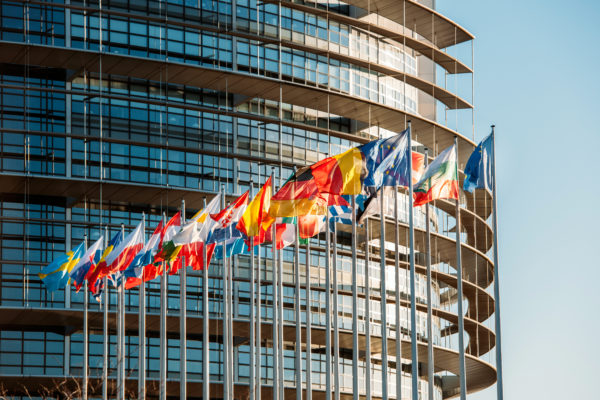
European Commission Paves Way for FinTech Growth in 2017
By Rebecca Martin for LTP
Last month, the European Commission established a Financial Technology Task Force to “help FinTech innovation reach its full potential in Europe” in 2017. Alongside this, the commission also launched their Start-up and Scale-up Initiative that aims to “give Europe’s many innovative entrepreneurs every opportunity to become world-leading companies.”
Is it a coincidence that the Fintech Task Force (FTTT) and entrepreneurial initiative have been launched by the European Commission at the same time? In a word, no.
Innovators are the Driving Force of FinTech
The phenomenal surge in FinTech is being driven by innovative startups and scaleups that are looking to compete with, redefine and transform the traditional financial system and infrastructure. The FTTT has been set up to catalyze the ‘substantial untapped disruption potential’ that these FinTech innovators are set to bring to the table in 2017.
So why is the finance industry in particular so easy to disrupt? Traditionally, this industry is weighed down by legacy architecture and processes that are easily targeted and transformed by agile, innovative startups.
In the new digital economy, consumers are accustomed to content on demand, user-friendly interfaces and advanced automation tools that anticipate their needs. And that includes your employees, colleagues and clients. FinTech startups are shaking up B2B as much as they are B2C, transforming business processes to enable smart companies to be agile and compete.
Over the past six years, FinTech has been largely focused on banking and retail payments. However, the FinTech market is maturing and bringing with it greater diversification, with innovators seeking to disrupt and enhance elements the whole way along the financial services value chain.
As such, startups and scaleups that specialize in insurance (InsurTech), blockchain technologies, artificial intelligence, automation and data and analytics are all set to rise in 2017, as part of the wider FinTech movement.
2017 Is the Year of FinTech
The FinTech revolution has only just begun. The seismic aftershocks of Brexit and the US political elections have impacted the global markets and, specifically, investment in FinTech worldwide. Bucking the upwards trend in investment, KPMG and CB Insights report in their ‘Pulse of Fintech’ report that:
‘Overall global investment in FinTech companies across both venture-backed and non-venture-backed companies totaled US$2.9 billion in Q3’16. Q3’16 saw VC-backed FinTech funding drop 17 percent to US$2.4 billion, while deal activity fell 12 percent to 178 deals.’
However, this is set to change as the aftershocks begin to settle in 2017 and investors become less cautious. (It is also worth noting that the benchmark from 2015 is phenomenally high. 2015 will be remembered as a year of successful FinTech IPOs, with companies such as PayPal, Square, WorldPay and First Data achieving multi-billion-dollar market capitalisations and twenty new FinTech unicorns – private companies with a valuation of over $1 billion.)
In the US, although the deal sizes in Q3’16 were smaller (amounting to just under $1bn), the total number of deals remained high. And overall, the view of year-to-date FinTech investment shows a positive trend:
“Fintech funding is down this quarter, but it in no way reflects a lack of interest among investors, particularly corporates who see FinTech as a way to leapfrog ahead of the competition,” says Brian Hughes, Co-Leader, KPMG Enterprise. “This interest will continue to grow as corporates are looking to take advantage of the opportunities FinTech provides.”
So What’s Next?
The European Commission’s Fintech Task Force and Start-up initiatives showcase what an exciting year 2017 is going to be. And this isn’t just big news for the Fintech players themselves. This will affect all companies (and consumers), as innovative financial platforms and tools start to infiltrate and transform all industries.
Nowhere is this more applicable than in Europe, as we experienced first-hand when we were asked to dine with the Belgian and Dutch Royal Families as part of a tech innovation drive between our countries.
2016 has been a year of political and economical uncertainty in Europe, and worldwide. But FinTech is not slowing down – it is only just maturing. I for one am excited at what next year will bring.
First appeared at LTP





